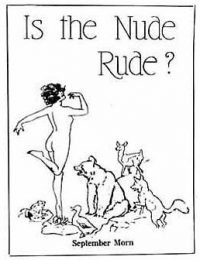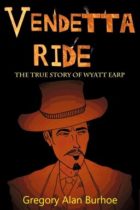Canuck Movies: The best Canadian Movies.
A Rant.
CANUCK MOVIES: Mounties, Nell Shipman & the Canadian Spirit — A Patriot’s Rant
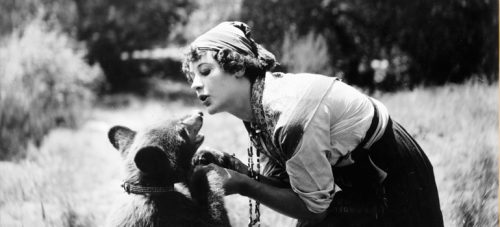
CANUCK MOVIES: Mounties, Nell Shipman & the Best Canadian Movies
“The leading man wasn’t a very good swimmer and when we got into that wild, white water, he forgot what little he knew. I was lucky enough to reach him and we made that big rock out there in the middle… Well, I’ve never been doubled — yet! But, Gosh! It sure makes me sore to sit in a picture theatre, watching myself pull some crazy stunt, and hear people say, ‘She didn’t really do that! It’s a trick! They do it with a camera!'” – Nell Shipman
“Canada gave her all in this war. I think that our understanding of what it means to be Canadian was actually forged in the crucible of the Western Front. And yet, mysteriously, our cinematic record is all but silent on this subject.” – Paul Gross
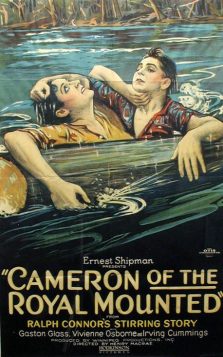 In 1921, Canadian independent film producer Ernest Shipman released a rousing silver screen version of Ralph Connor’s best selling novel CORPORAL CAMERON OF THE NORTH-WEST MOUNTED POLICE.
In 1921, Canadian independent film producer Ernest Shipman released a rousing silver screen version of Ralph Connor’s best selling novel CORPORAL CAMERON OF THE NORTH-WEST MOUNTED POLICE.
It was titled Cameron of the Royal Mounted. And quickly became one of the top moneymaking Canuck movies of that year worldwide. Drawing long line-ups of excited film-goers in every town and city throughout the Dominion. And beyond.
Books, magazine stories and movies about Canada’s Mounties were immensely popular with the public. Cameron of the Royal Mounted was the latest product of that success.
The huge popularity of Shipman’s earlier Canuck movies.
Canadian-set movies like Baree, Son Of Kazan and The Black Wolf and Back To God’s Country (all of which starred his wife Nell Shipman) fueled the demand for more popular Canuck movies based on our own Canadian stories. That demand was fanned by the rise of nationalistic fervour that burst out like a bonfire during the emotion-charged “Free Trade” Election of 1911. And our patriotic entry into the Great War of 1914.
Free Trade? Oh, yes.
When Liberal Prime Minister Wilfred Laurier had signed that Free Trade deal with President William Taft of the U. S. in 1911, Canadians remembered Sir John A MacDonald’s vehement “Free Trade is Treason!” They voted Laurier out in a landslide victory for Nova Scotia-born Conservative Robert Borden, killing the “Taft Deal.” [1]
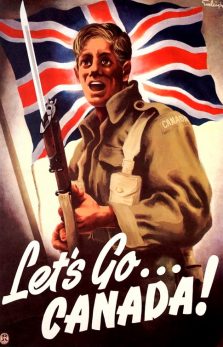 Canadians at that time passionately believed in cultural independence and an abiding love of England, the Mother Country.
Canadians at that time passionately believed in cultural independence and an abiding love of England, the Mother Country.
And we stormed the recruiting stations to join the battle in Europe to defend the Empire.
Patriotism ruled the True North Strong and Free.
We wanted stories that reflected this. Stories of our own history, our own heroes…
Our own movie makers rose to the challenge, producing exciting works of romance, adventure and stirring drama. Canuck Movies reigned.
Best Canadian movies…
The year 1913 saw The Battle Of The Long Sault — a realistic re-enactment of the Châteauguay battle with the Iroquois, jointly made with the Kanehnawaga First Nations. In true Canadian tradition, this film told the story from both viewpoints. The French colonial militia, Huron and Algonquin Nations on one side. The Iroquois Confederacy on the other.
For the next 11 years many of the top movies in Canada would be Homemade: The War Pigeon (1914). The Pine’s Revenge (1915). Self Defence (1916). The Black Wolf (1917). Baree, Son Of Kazan (1918). The Scorching Flame (1918). The Great Shadow (1919). God’s Crucible (1920). The Girl from God’s Country (1921). Cameron of the Royal Mounted (1921). The Rapids (1922). Nanook of the North (1922). The Man From Glengarry (1922). The Grub-Stake (1923). The Trail of the North Wind (1924). And Policing the Plains (1924 — released in 1927).
Nanook of the North was the first feature-length true-life documentary to achieve commercial success.
It told the story of Nanook, a hunter of the Inuit People.
“The documentary follows the lives of Nanook and his family as they travel, search for food, and trade in the Ungava Peninsula of northern Quebec, Canada. Nanook, his wife Nyla and their family are introduced as fearless heroes who endure rigors no other race could survive. The audience sees Nanook, often with his family, hunt a walrus, build an igloo, go about his day, and perform other tasks.” [2]
Decades later, Walt Disney would make a fortune producing “Nature docs” like Nanook, including White Wilderness.
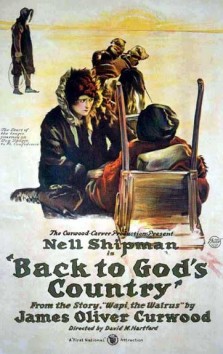 Ernest Shipman’s 1919 production of Back To God’s Country eclipsed all other made-in-Canada productions in box-office ticket numbers and popularity. Around the world. Before or since. Becoming our biggest motion picture success of all time — and that’s over a hundred years ago!
Ernest Shipman’s 1919 production of Back To God’s Country eclipsed all other made-in-Canada productions in box-office ticket numbers and popularity. Around the world. Before or since. Becoming our biggest motion picture success of all time — and that’s over a hundred years ago!
Ernest’s wife Nell wrote the screenplay for Back To God’s Country, based on a James Oliver Curwood short story. It also starred Nell as the heroine. Including a scene where she swam naked in a waterfall-fed northern river. [3]
By the mid 1920’s, the Hollywood Movie Moguls had begun their ruthless destruction of competing independent movie makers and theatre owners throughout North America. A prime target being Canuck Movies.
The U.S. government — spurred on by what Ernest Shipman called “New York financial interests” — imposed a “special tariff on the importation of Canadian films” into the States. High tariffs!
Our federal Liberal government of a young, newly-elected William Lyon Mackenzie King, supported by the Progressive Party, refused to respond to Ernest Shipman’s impassioned public plea for a “retaliatory tariff” against the importation of Hollywood films into Canada.
Thus the pertinacious extermination of Canada’s vibrant nationalistic film industry was a done deal. The new Canadian Spirit that had been born during the fiery “Free Trade” 1911 election — and in Flanders Fields and the bloody battles of Passchendaele and Vimy Ridge — was crushed by a closer enemy. Ernest Shipman was among the first of our cultural casualties. No major Canadian motion picture producers survived.
Although Nell Shipman bravely carried on by herself for a brief but brilliant time, writing, acting in and producing her own independent wilderness films…
Known today as “an early pioneer of Hollywood film-making,” the British Columbian actress Nell Shipman achieved overnight success as the star of Vitagraph Company of America’s 1916 hit silent movie God’s Country and the Woman.
Hailed as “the new Mary Pickford” and “one of the best Canadian actresses,” Nell turned down an offered seven year contract from an ambitious motion picture producer from Poland named Szmuel Gelbfisz (who was in the process of changing his name to Samuel Goldwyn). Instead, Nell choose to make a series of popular independent Canadian movies, first with her husband, then on her own.
A passionate believer in animal rights, she created a sanctuary of over a hundred abandoned animals, who often starred in her movies as friends who would save her from “men of prey more heartless than the beasts of the forest.”
Nell’s silent movies became a passionate visualization of her love of the free creatures of the wilderness. The Canadian Spirit. And the first ecofeminist art.
But by 1928…
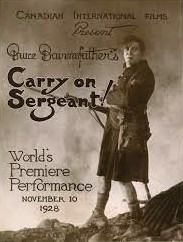 1928 would see our last national success (almost). Carry On Sergeant!
1928 would see our last national success (almost). Carry On Sergeant!
No, not part of that later British comedy franchise, but a powerful drama of Canadians in the Battle of Ypres.
Based on a book by Bruce Bairnsfather, creator of the popular Old Bill WWI cartoons, the movie had great reviews and initial sales. But the newly established American control of film distribution in Canada soon buried the film.
Another was The Beaver People (first of several internationally popular documentaries starring wilderness guide and writer Grey Owl). Not considered a danger to Hollywood control and profits, these Nature docs were left free to find a ready audience. They did.
And Twenty Years Later…
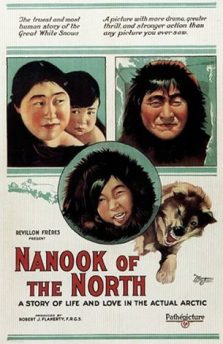 Two decades later, most of those Canadian movies were forgotten. Only “Nanook of the North” was an instantly recognizable phrase — here, and around the world.
Two decades later, most of those Canadian movies were forgotten. Only “Nanook of the North” was an instantly recognizable phrase — here, and around the world.
But a much older and wiser William Lyon Mackenzie King, again elected Prime Minister, had the opportunity to restore nationalistic movie enterprise in Canada.
In the years during or just after World War II, nations around the world were pouring scarce resources into building up their own national film industries.
Germany, Japan, Italy, Sweden, Spain, Australia and so many more were rebuilding movie production companies that would soon thrive. And represent their unique cultures. (Is there anything more British than the Carry On films?)
With that in mind, Prime Minister King established the National Film Board. Then allowed it to be gutted by his own Minister of Trade, American-born C D Howe, in favour of continued foreign control. (See “Canadian Co-operation, Hollywood Style,” Part Four of Pierre Berton’s essential HOLLYWOOD’S CANADA, in which Pierre describes what has to be one of Canada’s worst acts of cultural treason.)
Canuck Movies Today. Nothing has changed, eh?
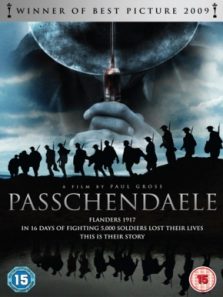 Due South‘s Paul Gross has written, starred in, directed and produced two major Canadian films. Passchendaele, about the WWI bloody battle in Flanders, where Canadian soldiers took huge losses but fought to victory over the Germans. And Hyena Road, a true story of a Canadian military unit in Afghanistan.
Due South‘s Paul Gross has written, starred in, directed and produced two major Canadian films. Passchendaele, about the WWI bloody battle in Flanders, where Canadian soldiers took huge losses but fought to victory over the Germans. And Hyena Road, a true story of a Canadian military unit in Afghanistan.
Neither movie was given much distribution in our foreign-controlled theatre system.
Passchendaele played briefly in empty Cineplex theatres while Canadians lined up to watch foolish foreign fluff featuring freaky funnybook fantasy fighters.
Passchendaele still won three 2009 Gemini Awards in Canada, including Best Picture, The Golden Reel Award and Best Performance by an Actor in a Leading Role (to Paul Gross). Both movies are available on DVD.
And Afghan veterans still continue to call Hyena Road the most realistic and authentic depiction of what they really went through.[4]
“My experience with Hyena Road and the many, many, many soldiers I came to know quite well in the course of making that film — they did talk to me,” Paul said in a recent interview with Jim Day of The Guardian. [5]
“And I suppose one of the greatest things I ever heard about the film was a veteran from the conflict came up to me and was quite moved and he was crying and he shook my hand and he said ‘I thank you a lot and now I can show this to my family because I’ve never been able to tell them what it was like.’ I think that is a struggle with a lot of the soldiers.”
There’s a genuine Canadian sentiment and reality to both Canuck movies, especially Hyena Road, that foreign reviewers didn’t get — which is my whole point.
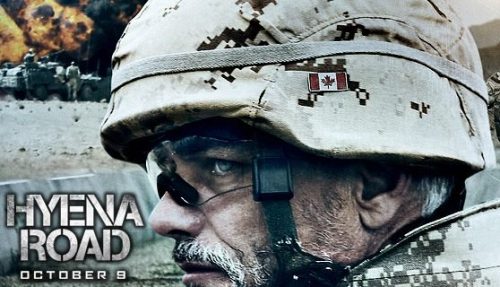
“LET’S NEVER, NEVER, GIVE IN TO THOSE WHO ARE SELLING OUT CANADA.” Mel Hurtig
==>> To Read More About the Life and Art of Nell Shipman, See Women Pioneers of Animal Rights – from Nell Shipman to Loreen Harper
==>> To learn more about the essential place our Mounties once had in Canadian Culture, go to “The GREATEST WRITERS OF NORTH-WEST MOUNTED POLICE FICTION”
“My Dad never really talked much about war and he’d been in Korea and seen some awful stuff. I think it is true for most soldiers. They have a hard time talking about it.” – Paul Gross.
And it’s true of my own father. See OUT OF MY FATHER’S SHAVING BOX: Dad’s War, Algonquin Regiment & Liberation of Holland.” – Brian Alan Burhoe
Canadian Movies — Further Reading:
HOLLYWOOD’S CANADA: The Americanization of Our National Image by Pierre Berton, McClelland & Stewart Ltd, Toronto, 1975.
TORN SPROCKETS: The Uncertain Projection of the Canadian Film by Gerald Pratley, University of Delaware Press, 1987
BOMB CANADA: And Other Unkind Remarks in the American Media by Chantal Allan, pages 17 to 18, Athabasca University Press, Athabasca, Alberta, 2009.
The Taft Deal
[1] Perhaps the fatal shot came to the “Taft Deal” for Canadian voters when Democratic House Leader Champ Clark gave a speech in the United States House of Representatives supporting Free Trade. After speaking hopefully of a “parting of the ways” between Canada and Britain, Clark concluded with his much-quoted: “I am for it because I hope to see the day when the American flag will float over every square foot of the British North American possessions, clear to the North Pole!” Revealing the real forces behind Free Trade.
Clark’s speech got a “prolonged applause.” Causing the Washington Post to comment, “Evidently, then, the Democrats generally approved of Mr. Clark’s annexation sentiments and voted for the reciprocity bill because, among other things, it improves the prospect of annexation.”
Republican Response
At the same time, Republican Representative William Stiles Bennet, a member of the House Foreign Relations Committee, introduced a resolution that asked the Taft administration to “begin talks with Britain on how the United States might best annex Canada.”
[2] https://en.wikipedia.org/wiki/Nanook_of_the_North
[3] Back To God’s Country. Nell later admitted that she was surprised that the nude scene wasn’t cut when shown in America.
Taking advantage of the moral outrage from some groups who wanted the film banned, the Shipmans bombarded the American motion picture theatre owners with full page ads in Moving Picture World that announced: DON’T BOOK “BACK TO GOD’S COUNTRY” — Unless You Want To Prove That The Nude is NOT Rude.
Because her tame bruin cub Brownie was also with her in the river during that shot, she later joked that she wanted to title that scene “In A Dark Pool With A Bear Behind” but knew that those words would get the film banned for sure. Hey, it WAS 1920.
Click on “Is The Nude Rude?” Image above to see the complete controversial Moving Picture World ad — as well as the more sensational Vancouver World ad!
[4] Wounded Warriors Canada: https://woundedwarriors.ca/hyena-road-is-proud-to-announce-its-partnership-with-wounded-warriors-canada/
[5] “My experience with Hyena Road and the many, many, many soldiers I came to know quite well in the course of making that film…” See Actor and director Paul Gross says Canadians should honour soldiers
Canuck Movies: Mounties, Nell Shipman & the Canadian Spirit – Best Canadian Movies
Animal actors, annex Canada, best Canadian movies, Brian Alan Burhoe, Canadian actresses, Canadian spirit, Canuck movies. Canada is not for sale, Canadian North. First ecofeminist art, great state of Canada, Hyena Road, Jack London, James Oliver Curwood, Mary Pickford. Mounties, Nell Shipman, north-west mounted police, nude scene. Patriots rant, Paul Gross, Paul Gross quotes, Pierre Berton, tariff on Canadian, Vimy Ridge.

